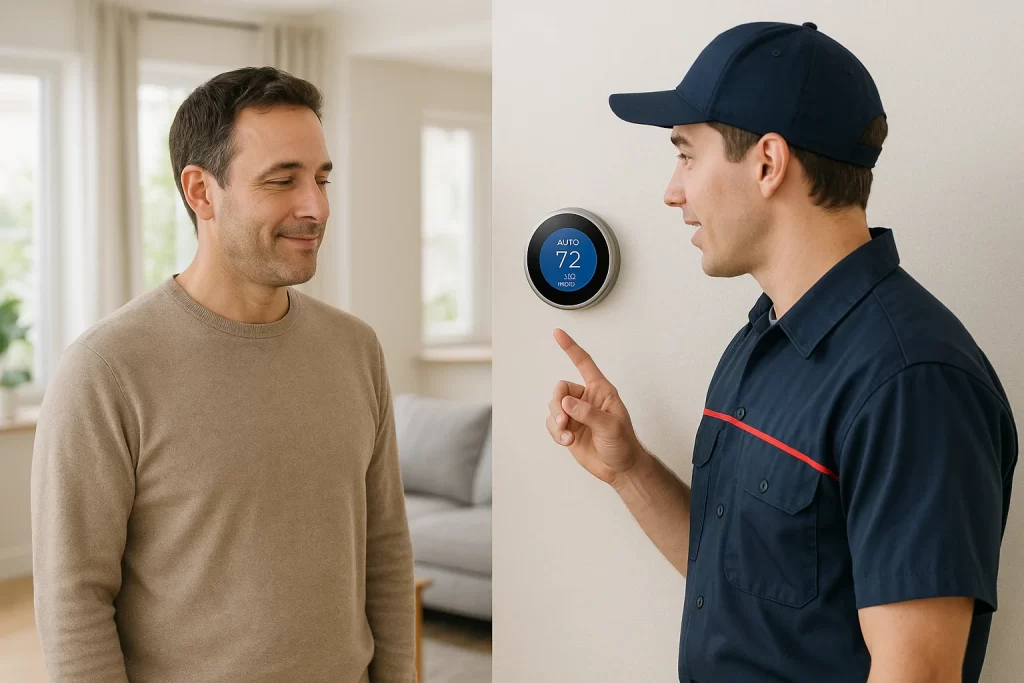If you’ve ever walked into your home on a hot, muggy day and still felt sticky even with the AC running, you’re not alone. High humidity can make your living space feel warmer, encourage mold growth, and reduce indoor air quality. The good news? Your air conditioner isn’t just for cooling—it can be a powerful tool to help manage indoor humidity when used correctly. And if your system isn’t keeping up, you may need an expert in AC repair in Huntington to get things back on track.
In Huntington, WV, the combination of high humidity and summer heat can make indoor comfort a real challenge. Without proper moisture control, your AC may struggle to keep the air feeling crisp and breathable.
At Air Supreme, we believe you deserve more than just cool air—you deserve comfort. That means understanding how your HVAC system can help you control not just temperature, but moisture too. Here’s how to make the most of your AC in the battle against humidity.

1. Make Sure Your AC is the Right Size
Bigger isn’t always better when it comes to air conditioning. If your system is oversized, it may cool your home too quickly without running long enough to effectively dehumidify the air. A properly sized unit will run longer cycles at a lower output, which helps pull more moisture from the air. If you’re unsure whether your AC is right for your space, our team can help evaluate it.
2. Use the “Auto” Fan Setting, Not “On”
Leaving your AC fan in the “on” position keeps air circulating constantly, even when the system isn’t actively cooling. This can push moisture back into the home before it has a chance to drain. Setting the fan to “auto” ensures that air only moves when the compressor is running, giving your system time to remove moisture and drain it properly.
3. Keep Coils and Filters Clean
Your AC system relies on evaporator coils to condense moisture from the air. Dirty coils or clogged filters can reduce airflow, which lowers the system’s efficiency and hinders humidity control. Replacing your filter monthly during peak seasons and scheduling regular cleanings helps your system run at full capacity.
4. Check for Refrigerant Levels and System Health
Low refrigerant levels reduce your AC’s ability to cool and dehumidify. If your home feels damp and sticky even when the system is running, or if you hear strange sounds or notice frost on the coils, it might be time for a professional checkup. Our HVAC techs can diagnose leaks and recharge refrigerant to restore comfort fast.
5. Consider a Whole-Home Dehumidifier
If your AC alone can’t keep up with humidity, especially in basements or larger homes, adding a whole-home dehumidifier can make a big difference. It works alongside your existing HVAC system to remove moisture more efficiently, improving comfort and protecting your home from mold and mildew.
Ready to take control of your indoor humidity? Whether your system needs a tune-up or a complete upgrade, we’re here to help.











